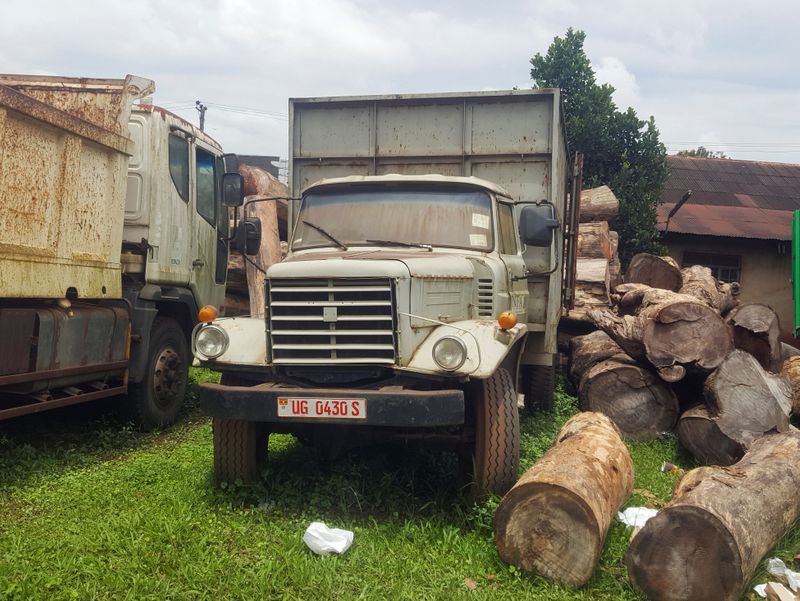By Elias Biryabarema
KALAGALA, Uganda (Reuters) - For decades, farmers hungry for land and families needing firewood whittled away at Uganda's forests, home to endangered gorillas, elephants and chimpanzees.
Now the decline has reversed, thanks to a government policy that relies on loggers to help protect trees. Private companies are developing timber plantations as buffers next to protected forests.
"Private planting is helping raise trees ... to absorb carbon and lock it there, but they are also stopping people from demanding timber in protected reserves, so it's a win-win situation," Tom Okello, head of the state-run National Forestry Authority (NFA), told Reuters.
But expanding forest cover further will not be easy, Okello added, with some 90% of Ugandans relying on firewood for cooking amid some of the highest electricity prices in Africa.
Uganda's forest cover plummeted from 24% of its area in 1990 to 9% in 2015, said a donor-funded report, State of Uganda's Forestry. It is now up to 12.5%, according to Okello.
Uganda's forest cover has clearly increased, said Leonidas Hitimana, project coordinator at the U.N. agency Food and Agriculture Organization, which helps fund some of the private forestry investors.
The companies are licensed to plant trees for timber in unplanted parts of government-owned forest reserves, such as Mpanga Forest Reserve in central Uganda where a trail twists through eucalyptus seedlings next to a forest of towering hardwood trees.
The program began 15 years ago, but the impact unfolded slowly - it takes at least seven years for a seedling to grow tall enough to count as forest cover.
Then the timber had to meet growing demand before any recovery was possible - timber consumption rose by around 50% between 2005 and 2011, the donor report said.
So far the NFA has licensed 4,000 private local and international investors, including Britain's New Forest Company, Norway's Green Resources and Germany's Global Woods. Nearly half the 200,000 hectares allocated for the initiative have been planted.
Favoured species include pine, eucalyptus, teak and maesopsis. A pine plantation takes about 20 years to mature and makes a return of over 500%, the NFA said.
The timber meets demand previously filled by illegal logging. Armed patrols also help deter cutting. A pile of confiscated Afzelia africana logs lies on the lawn of the NFA, their rotting bark revealing the hard wood prized in China.
CLIMATE BUFFERS
Uganda's tropical rainforests are vast carbon sinks, safeguarding water catchment areas and mitigating the harsh effects of climate change.
Uganda's maximum average annual temperature increased an estimated 0.6-0.9 degrees Celsius between 1951-2010, a 2018 Irish Aid report found, predicting an increase of around 2°C over the next 50 years.
Father-of-12 Muhammad Katerega, who grows vanilla, beans and potatoes on the edge of Mpanga forest, complains that rains and droughts seem more unpredictable and extreme.
"Sometimes I plant my crops expecting a rainy season, but instead there's a drought and I lose my entire crop," said the 59-year-old, his gumboots red with soil.
Reforestation might help reduce such unpredictability and slow the warming.
"Forests are natural carbon sinks for tropical countries which don't have large seas," Tom Sengalama, climate change and natural resources adviser at British development agency DFID, told Reuters. "A deforested landscape is less resilient to climate changes."
Okello says NFA wants to replenish forest cover back to 24% of Uganda's landmass by 2040. His biggest obstacle: costly power. If the forests are going to survive, that must change, he added.

"Unless electricity is cheaper, we will keep cooking on firewood. We don't have an alternative," Katerega said, minutes after a group of children clutching machetes filed into the forest.